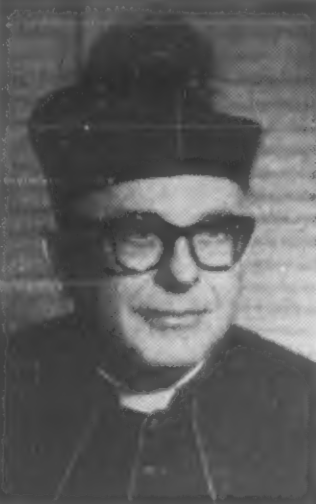The Continuing Anglican movement, also known as the Anglican Continuum, encompasses a number of Christian churches, principally based in North America, that have an Anglican identity and tradition but are not part of the Anglican Communion.

Virginia Theological Seminary (VTS), formally called the Protestant Episcopal Theological Seminary in Virginia, located at 3737 Seminary Road in Alexandria, Virginia is the largest and second oldest accredited Episcopal seminary in the United States.

The Reformed Episcopal Church (REC) is an Anglican Church. It was founded in 1873 in New York City by George David Cummins, a former bishop of the Protestant Episcopal Church.

The American Anglican Council began as an organization of theologically conservative Anglicans from both the Anglican Church in North America (ACNA) and The Episcopal Church in the United States. According to its membership brochure, it was founded "as a response to unbiblical teachings that crept into The Episcopal Church and the larger Anglican Communion." The organization believes that "the Episcopal Church faces an extreme crisis of belief centered on the uniqueness of Jesus Christ as Savior and the authority of Scripture. This crisis has resulted in conflicts over specific behavior and practices that are informed by Scripture, including issues concerning human sexuality and marriage, though these issues are in reality symptoms of the deeper issues."

The Anglican ministry is both the leadership and agency of Christian service in the Anglican Communion. Ministry commonly refers to the office of ordained clergy: the threefold order of bishops, priests and deacons. More accurately, Anglican ministry includes many laypeople who devote themselves to the ministry of the church, either individually or in lower/assisting offices such as lector, acolyte, sub-deacon, Eucharistic minister, cantor, musicians, parish secretary or assistant, warden, vestry member, etc. Ultimately, all baptized members of the church are considered to partake in the ministry of the Body of Christ.
The September 14–16, 1977 Congress of St. Louis was an international gathering of nearly 2,000 Anglicans in St. Louis, Missouri, united in their rejection of theological changes introduced by the Anglican Church of Canada and by the Episcopal Church in the United States of America in its General Convention of 1976. Anglicans who attended this congress felt that these changes amounted to foundational alterations in the American and Canadian provinces of the Anglican Communion and meant that they had "departed from Christ's One, Holy, Catholic and Apostolic Church." Theological liberalism, financial support for political action groups, participation in the Consultation on Church Union (COCU), revisions to the Book of Common Prayer, and the ordination of women priests were not the only reasons for the split, but they were seen by these churches as evidence of the mainline church's departure from Anglican orthodoxy. The idea for a congress originated with the Reverend Canon Albert J. duBois in 1973 in preparation for the Louisville General Convention of the Episcopal Church. Canon duBois and the group called "Anglicans United" toured parishes in advance of the Congress to garner support. This congress was sponsored by the Fellowship of Concerned Churchmen, an organization founded in 1973 as a coordinating agent for laypeople and clergy concerned about the breakdown of faith and order within the Episcopal Church and the Anglican Church of Canada.
In the United States, the history of the Episcopal Church has its origins in the Church of England, a church which stresses its continuity with the ancient Western church and claims to maintain apostolic succession. Its close links to the Crown led to its reorganization on an independent basis in the 1780s. In the nineteenth and early twentieth centuries, it was characterized sociologically by a disproportionately large number of high status Americans as well as English immigrants; for example, more than a quarter of all presidents of the United States have been Episcopalians. Although it was not among the leading participants of the abolitionist movement in the early 19th century, by the early 20th century its social engagement had increased to the point that it was an important participant in the Social Gospel movement, though it never provided much support for the Prohibitionist movement. Like other mainline churches in the United States, its membership decreased from the 1960s. This was also a period in which the church took a more open attitude on the role of women and toward homosexuality, while engaging in liturgical revision parallel to that of the Roman Catholic Church in the post Vatican II era.
The Anglican realignment is a movement among some Anglicans to align themselves under new or alternative oversight within or outside the Anglican Communion. This movement is primarily active in parts of the Episcopal Church in the United States and the Anglican Church of Canada. Two of the major events that contributed to the movement were the 2002 decision of the Diocese of New Westminster in Canada to authorise a rite of blessing for same-sex unions, and the nomination of two openly gay priests in 2003 to become bishops. Jeffrey John, an openly gay priest with a long-time partner, was appointed to be the next Bishop of Reading in the Church of England and the General Convention of the Episcopal Church ratified the election of Gene Robinson, an openly gay non-celibate man, as Bishop of New Hampshire. Jeffrey John ultimately declined the appointment due to pressure.

Anglican interest in ecumenical dialogue can be traced back to the time of the Reformation and dialogues with both Orthodox and Lutheran churches in the sixteenth century. In the nineteenth century, with the rise of the Oxford Movement, there arose greater concern for reunion of the churches of "Catholic confession". This desire to work towards full communion with other denominations led to the development of the Chicago-Lambeth Quadrilateral, approved by the Third Lambeth Conference of 1888. The four points were stipulated as the basis for church unity, "a basis on which approach may be by God's blessing made towards Home Reunion":

The Anglican Church in North America (ACNA) is a Christian denomination in the Anglican tradition in the United States and Canada. It also includes ten congregations in Mexico, two mission churches in Guatemala, and a missionary diocese in Cuba. Headquartered in Ambridge, Pennsylvania, the church reported 977 congregations and 124,999 members in 2022. The first archbishop of the ACNA was Robert Duncan, who was succeeded by Foley Beach in 2014.

William Howard Love is an American prelate. Love was the ninth bishop of the Episcopal Diocese of Albany, and he served in that role from 2007 until January 31, 2021. Beginning in April 2021, Love has served as Assistant Bishop of the Anglican Diocese of the Living Word.

Christianity and abortion have a long and complex history. There is no direct reference to abortion in the Bible, nor any explicit condemnation of abortion. The lack of discussion of abortion in Christian scripture has led to varied and divergent stances on the moral acceptability of abortion across Christian denominations and among Christians. Today, Christian denominations hold widely variant stances.

The Episcopal Church (TEC), based in the United States with additional dioceses elsewhere, is a member church of the worldwide Anglican Communion. It is a mainline Protestant denomination and is divided into nine provinces. The presiding bishop of the Episcopal Church is Michael Bruce Curry, the first African American bishop to serve in that position.

The Diocese of Quincy was a diocese of the Episcopal Church in western Illinois from 1877 to 2013. The cathedral seat was originally in Quincy, Illinois but was moved to St. Paul's Cathedral in Peoria in 1963. In order to avoid confusion with the Roman Catholic Diocese of Peoria, the diocese retained the name of the location of its original "home" city, Quincy, where its cathedral seat was St. John's.
A personal ordinariate for former Anglicans, shortened as personal ordinariate or Anglican ordinariate, is a canonical structure within the Catholic Church established in order to enable "groups of Anglicans" and Methodists to join the Catholic Church while preserving elements of their liturgical and spiritual patrimony.
Peter Francis Watterson was an American Catholic priest who had formerly been a bishop of the Continuing Anglican movement.
The Silent No MoreAwareness Campaign is an anti-abortion initiative based in the United States and was established in 2003 by Janet Morana, who is the Executive Director of Priests for Life, and Georgette Forney, the President of Anglicans for Life. It operates in collaboration with Priests for Life and Anglicans for Life to raise awareness about the negative impact of abortion.

The 1979 Book of Common Prayer is the official primary liturgical book of the U.S.-based Episcopal Church. An edition in the same tradition as other versions of the Book of Common Prayer used by the churches within the Anglican Communion and Anglicanism generally, it contains both the forms of the Eucharistic liturgy and the Daily Office, as well as additional public liturgies and personal devotions. It is the fourth major revision of the Book of Common Prayer adopted by the Episcopal Church, and succeeded the 1928 edition. The 1979 Book of Common Prayer has been translated into multiple languages and is considered a representative production of the 20th-century Liturgical Movement.

Albert Julius duBois was an influential American Anglo-Catholic priest during the 20th century.
John Hewitt Rodgers Jr. (1930–2022) was an American Anglican theologian and bishop. The author of multiple commentaries on the Thirty-Nine Articles of Religion, he was a founding faculty member at Trinity School for Ministry and served as its dean and president from 1978 to 1990. In 2000, he played a role in the global Anglican realignment when he was consecrated as a bishop of the Anglican Church of Rwanda to oversee congregations in North America through the Anglican Mission in America.














